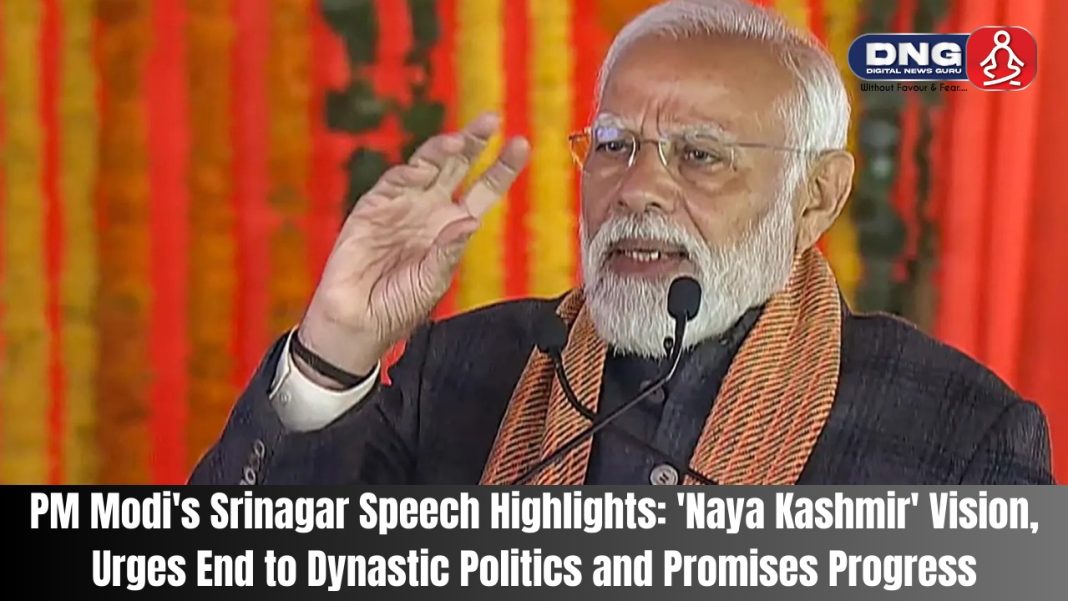DIGITAL NEWS GURU JAMMU & KASHMIR DESK:
PM Modi’s Srinagar Speech Highlights: ‘Naya Kashmir’ Vision, Urges End to Dynastic Politics and Promises Progress
On September 19, 2024, Prime Minister Narendra Modi delivered a highly anticipated speech in Srinagar, Jammu and Kashmir, marking a critical moment in both the region’s political landscape and the ongoing assembly elections.
The speech, part of a rally held at Sher-e-Kashmir Park, focused on his vision for a “Naya Kashmir” (New Kashmir) and served as an important platform to reinforce his government’s policies in the region.
“Naya Kashmir” and the Path Forward
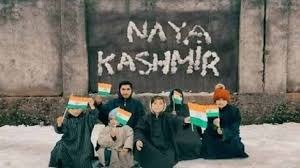
The prime minister opened his speech by lauding the high voter turnout in the first phase of Jammu and Kashmir’s assembly elections, which took place a day earlier. He interpreted the robust participation as a rejection of past political instability and violence, signaling a significant shift in the region’s political mindset. Modi pointed out that this election marks a new beginning for the region after the abrogation of Article 370 in 2019, which stripped Jammu and Kashmir of its special status. He expressed pride in the people’s democratic participation, stating that the high voter engagement reflects the population’s trust in a peaceful and prosperous future under the BJP government.
The core of Modi’s address revolved around his commitment to building a “Naya Kashmir,” a term that encapsulates his vision of a region marked by economic development, security, and peace. He emphasized that his government has laid the groundwork for the region’s transformation through various development projects, focusing on infrastructure, education, healthcare, and tourism. He also highlighted the steps taken to improve road connectivity, water supply, and digital access in Jammu and Kashmir.
Criticism of Opposition Politics
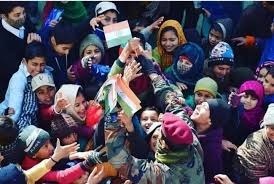
Throughout the speech, Modi took direct aim at the traditional political families that have dominated Jammu and Kashmir’s politics for decades, specifically the Abdullahs of the National Conference (NC) and the Muftis of the People’s Democratic Party (PDP). Modi referred to these political dynasties as the “three families,” accusing them of exploiting the region for their own gain and being complicit in fomenting unrest and violence.
He argued that the era of dynastic politics is over and that the people of Jammu and Kashmir are now looking forward to a more inclusive and forward-thinking government that prioritizes development over division. Modi pointed to the high voter turnout as evidence that the people have rejected the politics of the past, especially the support some opposition parties have extended to stone-pelters and those involved in militancy.
Security and Peace
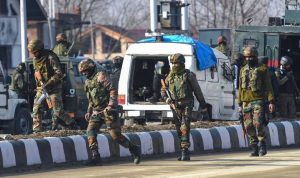
A recurring theme in the speech was the promise of security and stability for the region. Modi stressed that his government would not allow the future of Jammu and Kashmir to be jeopardized by violence or separatism. He reaffirmed his administration’s hard stance against terrorism and militancy, reiterating the importance of maintaining law and order to ensure that development projects can proceed uninterrupted.
In a direct appeal to the people of the region, Modi vowed to continue improving security measures while ensuring that the common citizens feel safe. He pointed to the recent years of relative peace in the valley as a direct result of his government’s policies and its focus on dismantling networks that promote violence.
Economic Development and Jobs
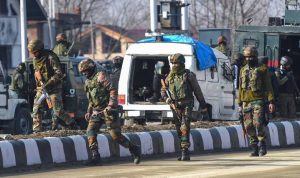
Modi also spoke extensively about job creation and economic opportunities in Jammu and Kashmir, which he said are key to securing a better future for the region’s youth. He noted the growing interest of investors in the region, crediting his administration’s initiatives for making Jammu and Kashmir more accessible to both domestic and international businesses.
The prime minister highlighted industries such as tourism, agriculture, and information technology as critical growth areas. He pledged to continue enhancing the infrastructure that would attract more investment, create jobs, and raise the standard of living for local residents. He specifically mentioned plans to improve the tourism industry, which has long been a vital part of the region’s economy but has suffered due to political instability.
A Message of Gratitude
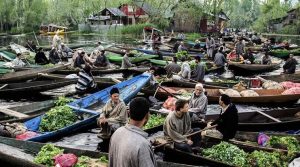
Towards the conclusion of his speech, Modi expressed gratitude to the people of Jammu and Kashmir for their overwhelming support in the first phase of voting. He acknowledged that their trust in his leadership was a clear endorsement of his government’s efforts to improve the region’s prospects. Modi promised that his administration would not let them down, reaffirming that the BJP’s policies were designed to build a peaceful and prosperous Jammu and Kashmir.
Conclusion
Modi’s speech in Srinagar was not just a campaign rally but a reaffirmation of his government’s approach to integrating Jammu and Kashmir into the broader national framework. His emphasis on rejecting dynastic politics, enhancing security, and promoting economic development resonated with the crowd, many of whom have experienced the region’s turbulent political history firsthand.
For the prime minister, this speech was also about galvanizing support for the BJP in a region that has historically been resistant to its influence. With the elections underway, Modi’s message was clear: the future of Jammu and Kashmir lies not in the politics of the past but in the hands of those who seek peace, progress, and prosperity under a “Naya Kashmir”.
YOU MAY ALSO READ: Second Assassination Attempt on Donald Trump: Gunman dropped his rifle, two backpacks and fled in a car



